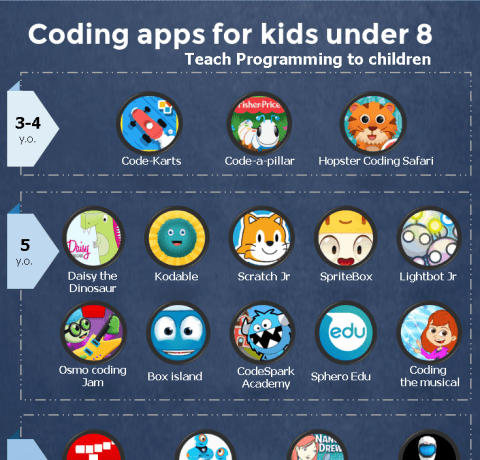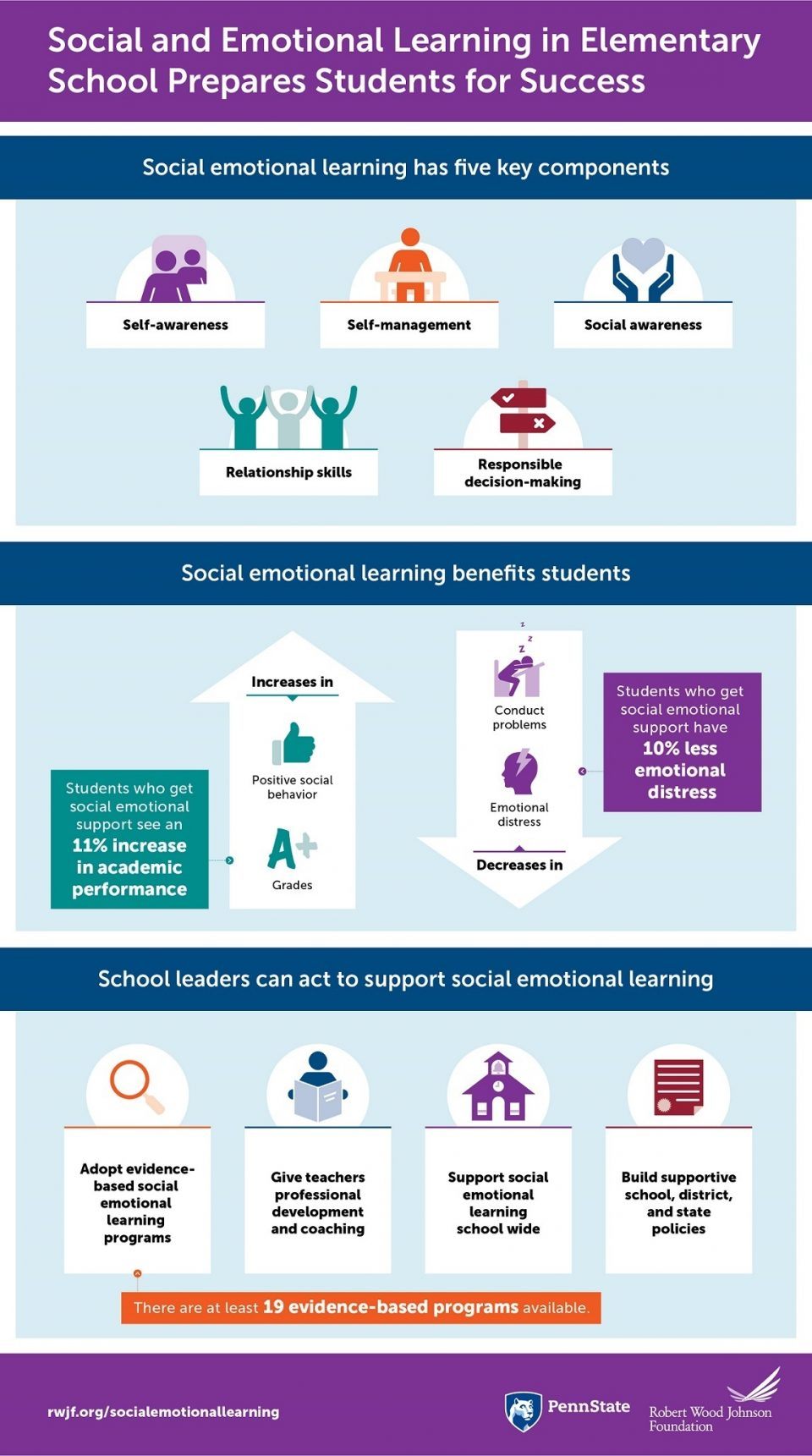Social Emotional Learning in Elementary School Infographic
Social emotional learning (SEL) programs can promote academic achievement and positive social behavior, and reduce conduct problems, substance abuse, and emotional distress.
At the elementary-school level, social and emotional learning enhances students’ abilities to understand and manage their emotions, set and achieve personal and academic goals, show respect and empathy for others, establish and maintain positive relationships, and make responsible and ethical decisions. These personal and interpersonal competencies provide a foundation for success in work and relationships as adults.
The Issue
There is widespread evidence of successful, universal social emotional learning (SEL) programs and practices that can support social and emotional development in students during the elementary school years. Based on decades of research and evaluation in rigorous field trials, these approaches are now widely available to schools, along with teacher training and ongoing coaching to support high quality implementation.
Key Findings
- SEL programs can promote academic achievement and healthy, positive behaviors.
- SEL is critical to students success and shows a positive return on investment.
- Effective programs address everything from individual student instruction to overall school climate.
- They are also evidence-based, are improved by partnering with families, are culturally and linguistically sensitive, and include teacher training.
Conclusion
Schools should adopt effective SEL programs to ensure student success, and policymakers should create policies and guidelines that support SEL goals.
See also: Why It Is Imperative to Assess Social Emotional Learning Infographic







You can adjust your cookie preferences here.